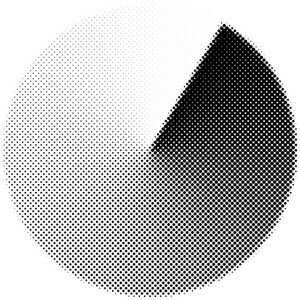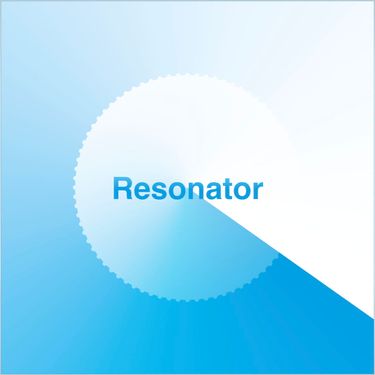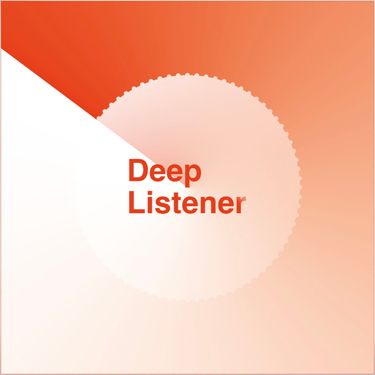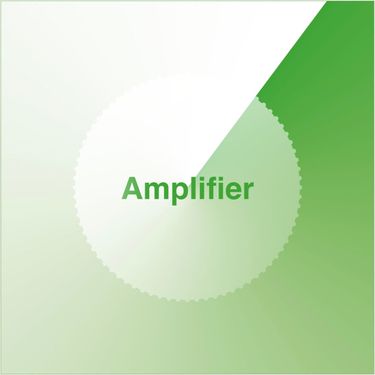Sound Objects + Environmental Improvisation
Up to $85.80 for members (includes all fees)
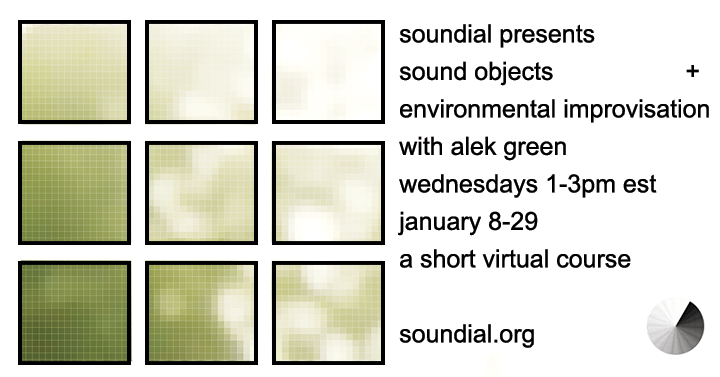
Schedule
Wednesdays, January 8th, 15th, 22nd, and 29th
1pm - 3pm EST (NY time)
Virtual
Description
Open to artists of all disciplines and levels of experience, this course explores building sound objects, using environmental patterns as scores, and developing improvisational approaches to working with sound. Together we will examine texture, timbre, and tone through material experimentation, collaborative exercises, and engaging with our surroundings through active listening and response.
The course is divided into two parts. The first centers on building sound objects by exploring materials, resonance, and tuning systems. We will look at the concept of "sonifying" found objects: transforming everyday items into instruments capable of producing intentional sound. We’ll observe how materials respond to touch, pressure, and motion, testing different ways to manipulate these sounds.
The second half of the course shifts to using our sound objects in collaboration with our environment. We’ll observe patterns in our surroundings that can serve as scores and create improvisational pieces based on them. Documentation will play an important role in this process: participants will experiment with different forms of archival practices, including written notes, sketches, photos, or audio/video recordings. Through discussions and exercises, we’ll consider how sound can be used across disciplines: from performance to visual and textual mediums.
The final week will be dedicated to performance, where participants will present their objects and share their documentation process.
A breakdown of what we will cover:
✣ Material texture, timbre, and resonance
✣ Sonic sculpture (sound objects, sounding materials, 3D tools)
✣ Best practices for documentation
✣ Environmental improvisation
✣ History and practice of expanded scoring techniques
✣ Texture organization in other media (film, poetry, etc.) and its application to sound practice
Please note: ticket registration closes 30 minutes prior to event start time.
Syllabus
Week 1: TEXTURE, TIMBRE, TONE, TUNING.
Come to class with 2 pencils!
✣ Understanding texture, timbre, tone, and tuning in relation to sound-producing materials. What makes a material sound like a material? What makes it feel like a material?
✣ Exploring the acoustic properties of materials: how stiffness, mass, and internal structure influence vibration and sound emission. How do our interactions with the material alter a sound?
✣ References: o.blaat, Alvin Lucier, Jace Clayton, Pauline Oliveros, Irv Teibel
✣ Tools & Practice: Challenging western systems of sound making and listening while using a DAW (Sufi Plug Ins)
✣ Hands on techniques: Changing vocabularies to deal with the nature of sound from scratch
Week 2: RESONANT MATERIALS, PEOPLE, BODIES.
✣ Exploring the concept of resonance in materials, spaces, and the human body. What is resonance and how can we use it when making sonic objects? How do we listen for resonance?
✣ The physics of resonance: natural frequencies, harmonic vibration, and standing waves in objects and spaces.
✣ How has resonance been used by sound artists in the past?
✣ References:, R. Murray Schafer, David Tudor, Maryanne Amacher
✣ Hands-On Techniques: DIY fabrication techniques, emphasizing resonant frequencies, experimenting with environmental feedback
Week 3: DOCUMENTATION + DESTRUCTION.
Part 1: Documentation and the Ephemeral
✣ How can we document an object, an ephemeral performance, a fleeting moment? When are the instances one would want to document something?
✣ Documentation as a practice. Discuss the relationship between live sound and their representations in recordings, images, drawings, or text.
✣ Balancing the integrity of ephemeral works with the need for preservation and dissemination.
✣ References: Janet Cardiff, Stan Brackhage, Yoko Ono, Annea Lockwood, Pamela Z
Part 2: Scorekeeping
✣ Let’s talk about environmental scores! What are they, where are they, how can we play them?
✣ Creating and interpreting experimental scores based on patterns and textures in the surrounding environment.
✣ The role of graphic scores and improvisation in expanding traditional notions of musical composition.
✣ References: R. Murray Schafer, Mark Applebaum, Raven Chacon, bpNichol, Peter Greenaway
Week 4: ENVIRONMENTAL IMPROVISATION.
Part 1: Environmental Improvisation
✣ Using our sound objects and environmental scores as the basis for improvisational performances.
✣ Techniques for engaging with environmental soundscapes in real-time.
✣ The relationship between performer, object, and environment
✣ References: Annea Lockwood, Hildegaard Westerkamp, John Cage Rahsaan Roland Kirk, John Grayson
Part 2: Presentations
✣ For our final project, we’ll present our objects, perform our scores, and reflect on the documentation process. The session will include feedback, discussion, and celebration of our work.
Hardware & Software Requirements
✣ DAW of your choice
✣ Computer with the latest Zoom update
✣ Headphones or studio monitors
✣ Notebook & pencil
✣ A second screen (optional but recommended)
Please email us at hi@soundial.org with any questions about the equipment list.
Instructor Bio
Alek Green (he/him) is an interdisciplinary sound artist originally from the lək̓ʷəŋən/ Songhees territories and currently based in NYC. He graduated with a BFA in 2023 from NSCAD, and is currently an MFA candidate in Columbia’s Sound Art program.
His work focuses on ideas of translation, the environment, and the “non-musician”. He spent his last year in a composition residency for Kjipuktuk’s experimental music festival Everyseeker, and collaborating with artists in fields both sonic and visual. He also spent four months with the Centre for Art Tapes, developing a database of hi-fi samples and field recordings that are free for anyone to dip their toes into sound-music-score making.
Alek’s work spans through sound, film, object, movement, and body language, but always seems to settle down into something that is playful, collaborative, and communal.
https://www.alekgreen.xyz/
https://www.soundreservoir.org/
@7.83.hz
Contact
hi(at)soundial.org
Website: soundial.org
Instagram: @sound.ial
Cancellation Policy
Ticket holders have the option to cancel their reservations and receive a full refund if they do so at least 48 hours before the event starts. However, please note that any cancellation requests made within 48 hours of the event start time or after the event has already begun will not be honored.
If you're unable to attend but have a friend who'd love to take your spot, you can transfer your reservation to them before the class begins.
To request a cancellation, please send an email to hi(at)soundial.org with the subject line "Cancellation Request." In the email, include the following info:
• Your full name
• Date and time of the scheduled event
For eligible cancellation requests, we will initiate a refund to the original payment method used during registration. Please allow a processing time of 5-10 days for the refund to be processed.
Soundial reserves the right to cancel or reschedule events if necessary. Despite our best efforts, unforeseen circumstances such as technical issues or unavailability of instructors may arise, requiring adjustments to the event schedule. We will make every effort to notify you promptly and provide alternative options or refunds as needed.
We appreciate your understanding and cooperation in these situations!
